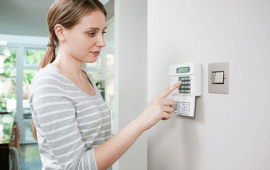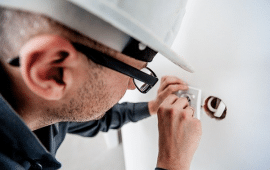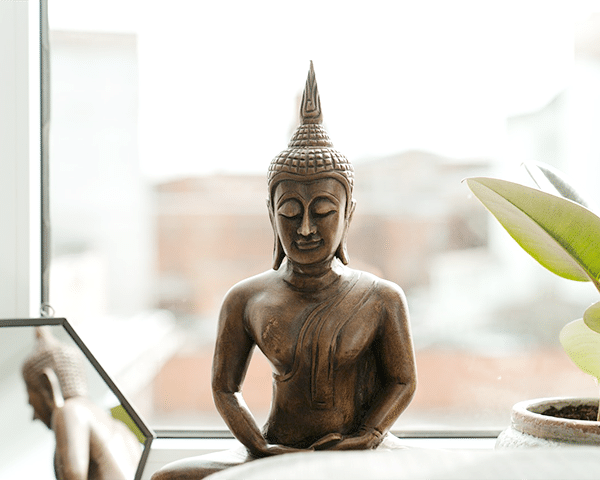
You may already know about Feng Shui (pronounced “fung shway”) as it has gained popularity through celebrity enthusiasts like Gwyneth Paltrow and Marie Kondo. While this ancient Chinese belief—that the way your house is built or the way that you arrange objects affects your success, health, and happiness—may seem questionable to scientific minds, many of its principles adhere to good architecture and makes for a more sensible lifestyle. If you’re curious and up for it, we take you room to room for basic feng shui pointers to get started and incorporate into your home.
Feng Shui Basics for Beginners
The Main Entrance
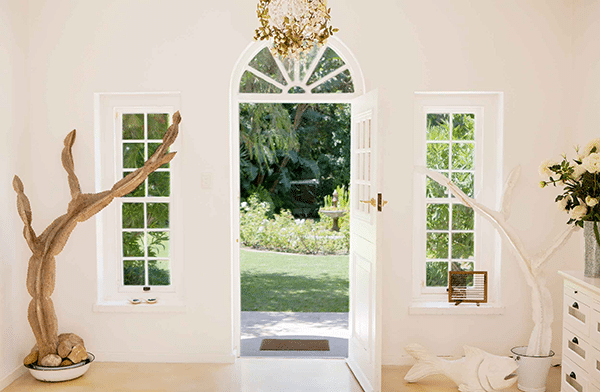
Image by Paul Bradbury
- The main entrance is deemed most important in Feng Shui as it is the portal for energy to enter the home. The main door should be inviting to attract positive energy from outside. You can achieve this with lighting, plants, and repainted doors. This also means doing fixes to a squeaking door (the squeak sounds like your door is crying, which repels luck and harmony.)
- A front door that is aligned directly with the back door or the stairway is not ideal as it makes the energy rush in and out of the house. You want to slow down the energy and allow it to gracefully flow around your home. Fix this by placing a patterned rug on the floor, artwork on the walls, or a round entry table.
- Add a bookcase near the entrance. The idea is that the positive energy that enters your home stimulates learning. It also keeps houseguests pre-occupied while waiting.
- Clean up clutter from the front door and throughout the house to keep the flow of energy uninterrupted.
The Living Room
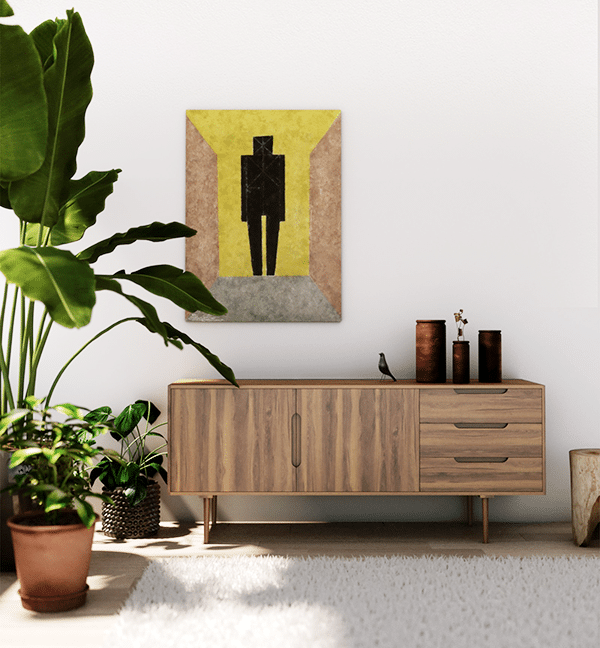
Image from pexels.com
- Your living area should be at the core of your home. It is meant to contain the most energy in your home. This also helps encourage social interactions among family members. Make sure to provide ample space to ease flow and movement, that means less stuff and bulky furniture.
- Speaking of furniture, the furniture should be positioned to the west and south areas of the room to gain sunlight throughout the day. That is why it’s good to have large windows and open curtains to let the wind and sunshine in. It is also a way of brightening up the room and bringing beautiful views inside.
- It is also recommended to decorate with some sort of water feature like fountains to encourage energy flow. The gentle flowing sound of water also adds to the relaxing and welcoming vibe of the living room.
The Dining Room
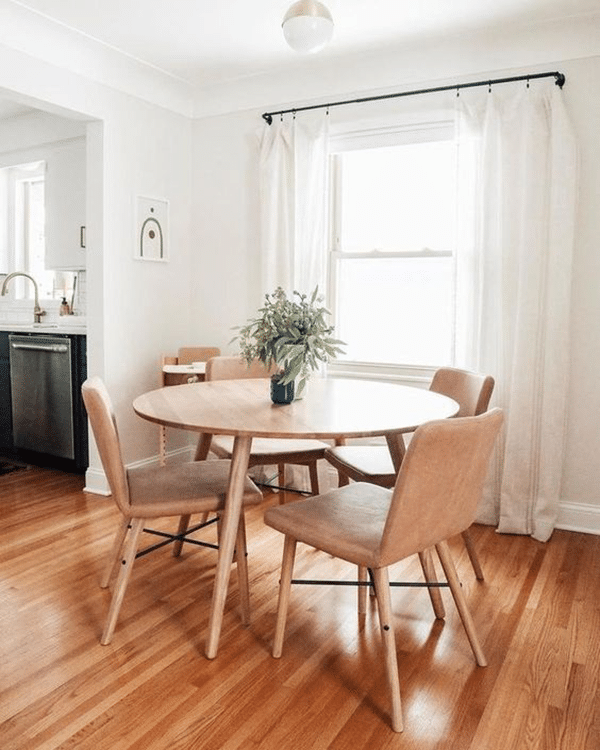
Image from article.com
- Round or oval-shaped dining table is best as this allows energy to flow gently throughout a room. It also represents equality and minimizes the distance of food items from any family member. If you have a square or rectangular table, make sure the corners are rounded or dulled. Those sharp corners are simply not as safe.
- Chipped and broken plates must be thrown away as they are considered bad luck. Your dinnerware does not need to be new, but presenting well-maintained ones will be appreciated by your guests.
- Placing fresh flowers and bowls of fruit on top of your dining table represent freshness and richness in your home.
- Clocks and TVs are a no-no in the dining room as they create distraction. This also limits social interaction among family members while having a meal together.
The Kitchen
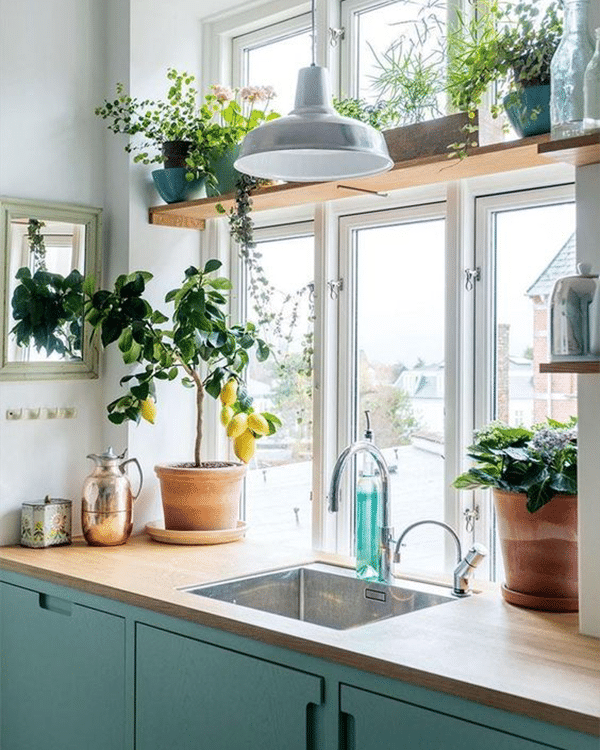
Image from monsterscircus.com
- Eliminate dead spaces in the kitchen, such as the area above overhead cabinets. Spruce up the space with ample lighting or vibrant plants and herbs.
- Make sure to always clean windows of grime and stains. This allows to maximize sunlight to brighten up the room and helps oversee activities outside the kitchen.
The Bedroom
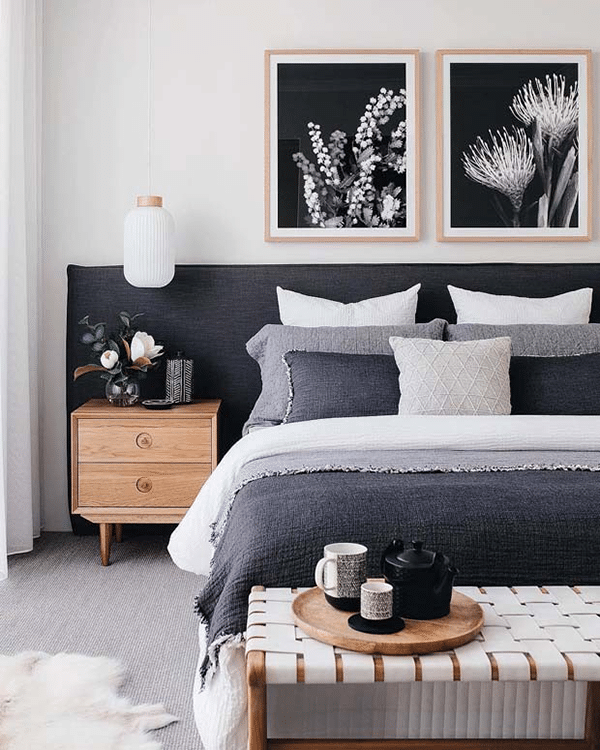
Image from casavogue.globo.com
- The bed should be in a position that allows you to see the door. This symbolizes you being in command and allowing you to see what’s coming in life. It also gives you more security as you can easily see who enters your bedroom.
- Go for a neutral color scheme for your bedroom. Your sleeping area should focus on maintaining a quiet ambiance.
- Get rid of items in your bedroom that suggest stimulating activities like the TV, phone, laptop, and gym equipment to help you calm down before sleeping. After all, the bedroom is where you nurture and refresh your physical, emotional, spiritual, and mental health.
- A sturdy headboard and side tables on both sides of the bed symbolizes stability and balance. The tables also help keep your bed free from scattered items.
The Bathroom
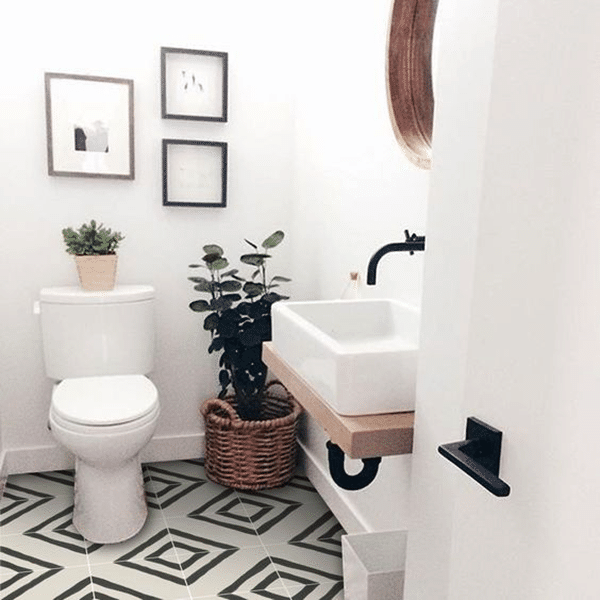
Image from quadrostyle.com
- Ideally, bathrooms should be located away from kitchen, living and dining room areas. The energy between these areas of the house are not compatible. Besides, you would not want to see the toilet while eating or cooking, right?
- Make it a habit to keep the bathroom door closed. This prevents negative energy from entering the house and it also helps contain bad odors.
- Keep the toilet seat down and cover open drains at all times. In Feng Shui, this prevents your money from ‘going down the drain’. It also prevents bad smells from lingering and pests from entering your bathroom.
The Home Office
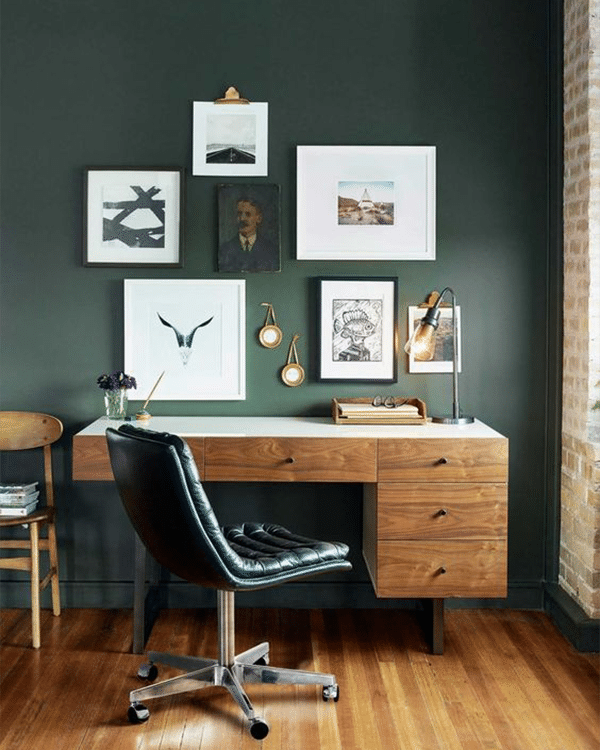
Image from luluandgeorgia.com
- Your home office should be as far from your bedroom as possible. If there’s limited space and the layout is not a fit, be sure to create as much division as possible between your office area and your bedroom. This allows focus and encourages productivity.
- Do not face a wall while working at your desk as it blocks energy flow. Add a mirror, a picture of landscape or even your vision board to keep you inspired.
Some Feng Shui Cures

You can add these items in your home to encourage positive flow of energy in your home:
Crystals: Crystals are popularly used to modulate energy and fill in missing spots.
Fountains and water: These create energy in any space.
Mirrors: Mirrors activate and expand energy.
Auspicious symbols: You can get a Buddha, lucky bamboo plants, and oils enhance good energy.
There’s no guarantee that your life will magically transform if you do these tips. However, there’s no harm in trying and you are certainly free to only apply the ones that make the most sense to you. Ultimately, finding harmony and bringing positive vibes in your home starts with you. A happy home is a lucky home. Feel free to browse our blog for more home and decor tips.

